
Kiang West National Park: A Gambian Wildlife Haven
Kiang West National Park is a hidden gem in The Gambia, offering a unique and enriching experience for nature lovers. Located on the south bank of the Gambia River, this expansive park covers over 19,526 hectares of diverse landscapes including savannas, mangroves, and forests. As you explore the park, you'll encounter a wide variety of wildlife, from antelopes and warthogs to over 300 species of birds, making it a birdwatcher's paradise. The park is not just about wildlife; it also offers a deep connection to the local culture. The nearby villages provide a glimpse into the traditional Gambian way of life. Visiting Kiang West National Park means immersing yourself in both natural beauty and cultural richness. The park's well-maintained trails and knowledgeable guides make it accessible for all levels of adventurers. Whether you are an avid bird watcher, a wildlife enthusiast, or someone seeking tranquility away from the bustling city life, Kiang West National Park promises an unforgettable experience. The best time to visit is during the dry season, from November to June, when wildlife is more visible and the weather is favorable for outdoor activities.
Local tips in Kiang West National Park
- Visit during the dry season (November to June) for the best wildlife viewing opportunities.
- Hire a local guide to enhance your experience and learn about the flora and fauna.
- Bring binoculars for birdwatching as the park is home to over 300 species of birds.
- Wear comfortable walking shoes and bring plenty of water for your hikes.
- Consider staying in nearby eco-lodges for an immersive nature experience.
Kiang West National Park: A Gambian Wildlife Haven
Kiang West National Park is a hidden gem in The Gambia, offering a unique and enriching experience for nature lovers. Located on the south bank of the Gambia River, this expansive park covers over 19,526 hectares of diverse landscapes including savannas, mangroves, and forests. As you explore the park, you'll encounter a wide variety of wildlife, from antelopes and warthogs to over 300 species of birds, making it a birdwatcher's paradise. The park is not just about wildlife; it also offers a deep connection to the local culture. The nearby villages provide a glimpse into the traditional Gambian way of life. Visiting Kiang West National Park means immersing yourself in both natural beauty and cultural richness. The park's well-maintained trails and knowledgeable guides make it accessible for all levels of adventurers. Whether you are an avid bird watcher, a wildlife enthusiast, or someone seeking tranquility away from the bustling city life, Kiang West National Park promises an unforgettable experience. The best time to visit is during the dry season, from November to June, when wildlife is more visible and the weather is favorable for outdoor activities.
When is the best time to go to Kiang West National Park?
Unmissable attractions to see
Fort James Island
Explore the captivating beauty and rich history of Fort James Island, a must-visit tourist attraction in The Gambia.

Oasis and Trails
Experience the tranquil beauty of Oasis and Trails in Sanyang, The Gambia - a nature lover's paradise for relaxation and exploration.
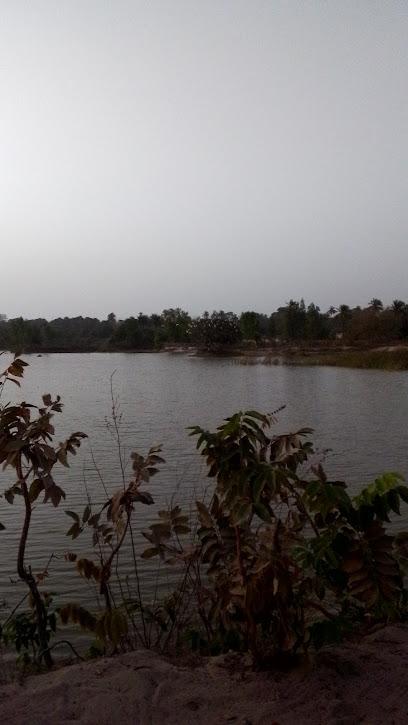
Ousainou and Brother's Farm
Experience tranquility and natural beauty at Ousainou and Brother's Farm in Masembe, a serene garden showcasing the region's agricultural heritage.
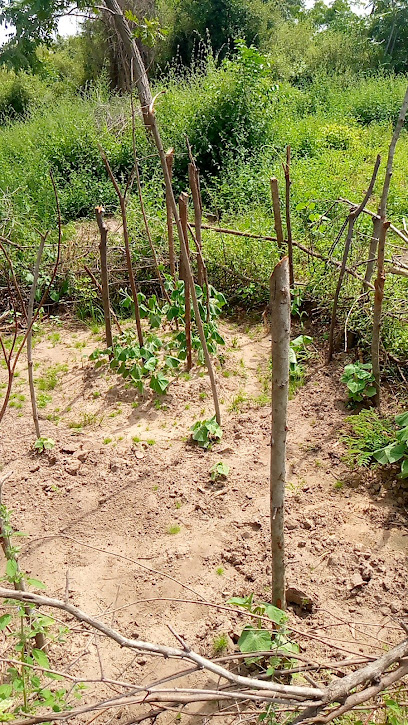
Belel Forest Park
Discover the enchanting landscapes and wildlife of Belel Forest Park, a serene escape in Darusalam, The Gambia, perfect for nature lovers and outdoor enthusiasts.

Bansan
Explore the natural beauty and tranquility of Bansan, a captivating tourist attraction in Bureng, Gambia, perfect for relaxation and cultural immersion.

KANI JAMBA
Discover Kani Jamba in Gunjur – a serene tourist attraction blending natural beauty with rich Gambian culture and unforgettable experiences.

Banni swamp area
Explore the serene Banni Swamp Area, a hidden natural gem filled with wildlife, lush landscapes, and unforgettable outdoor adventures.

Mutaro Kunda Forest Park
Explore the lush landscapes and diverse wildlife of Mutaro Kunda Forest Park in Wellingara, a serene state park perfect for nature lovers and adventure seekers.

Illiassa Women’s Garden
Experience the serene beauty and community spirit at Illiassa Women’s Garden, a unique destination promoting women's empowerment through nature.

Katakorr
Explore the serene beauty of Katakorr Park in Bureng, Gambia, where nature meets community for a perfect getaway.
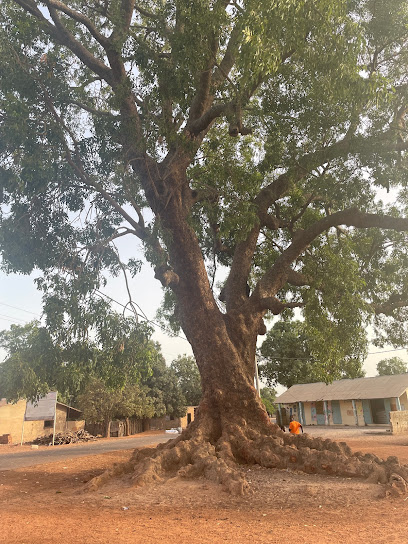
Nema kounkou
Explore Nema Kounkou in Bureng, Gambia – A serene tourist attraction where culture meets natural beauty, offering a unique travel experience.

Dobo Forest Park
Explore the enchanting beauty of Dobo Forest Park in Nduren, a serene state park perfect for nature lovers and outdoor enthusiasts.

Essential places to dine
Poco Loco Beachbar Gambia
Experience vibrant dining and stunning ocean views at Poco Loco Beachbar in Serrekunda, Gambia – where relaxation meets fun.
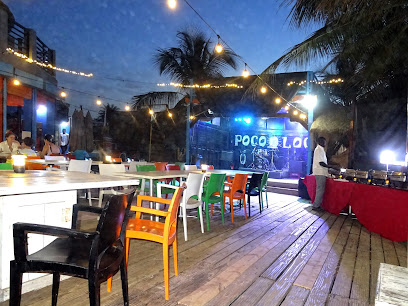
Mo2 Jamaican Bar & Restaurant Gambia (Mosiah's)
Discover authentic Jamaican cuisine at Mo2 Jamaican Bar & Restaurant in Serrekunda – where flavor meets culture!
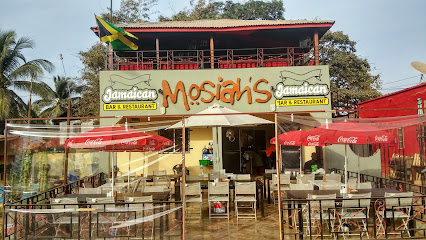
Darboe's Bar and Restaurant
Experience authentic Gambian cuisine at Darboe's Bar and Restaurant in Serrekunda—where flavor meets culture.
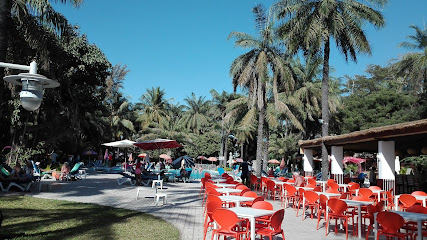
African Queen Restaurant
Experience authentic Gambian cuisine at African Queen Restaurant in Serrekunda – where every meal tells a story.
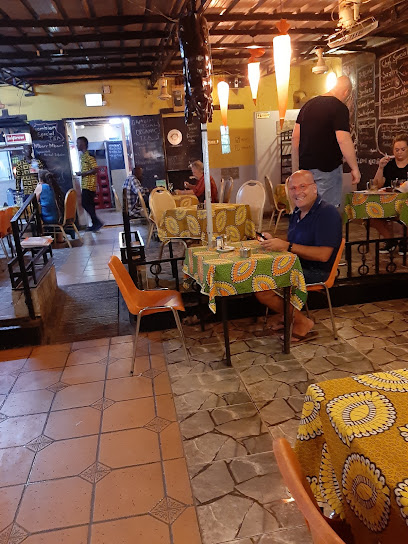
Ngala Lodge
Experience luxury and relaxation at Ngala Lodge in Bakau - your perfect getaway with fine dining, wellness spa treatments, and stunning ocean views.

La Parisienne Restaurant
Experience culinary excellence at La Parisienne Restaurant in Serrekunda – where local flavors meet global cuisine.
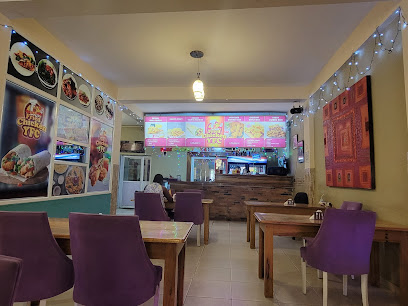
Dominos Beachbar
Discover unforgettable moments at Dominos Beachbar in Serrekunda – where vibrant culture meets stunning ocean views.
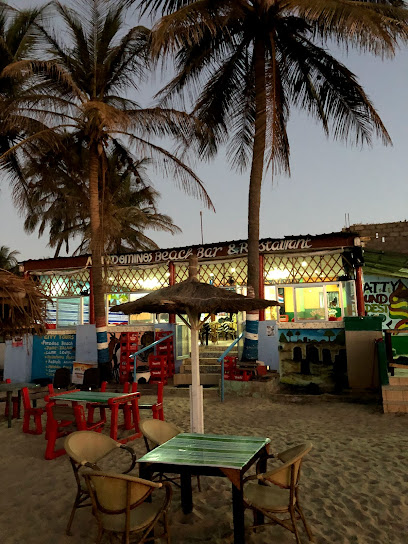
Sea Shells Bar & Restaurant
Experience exquisite Gambian cuisine at Sea Shells Bar & Restaurant on Senegambia Highway – a culinary delight for every traveler.
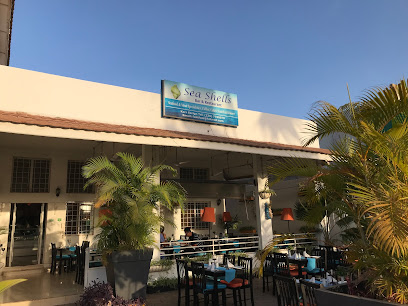
Justice Bar & Restaurant
Experience the vibrant flavors of The Gambia at Justice Bar & Restaurant - where local cuisine meets exceptional service in Serrekunda.
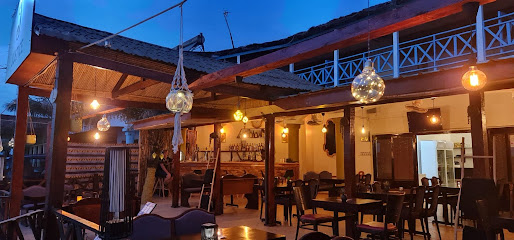
The Clay Oven
Savor authentic Gambian cuisine at The Clay Oven in Serrekunda - where tradition meets flavor in every dish.
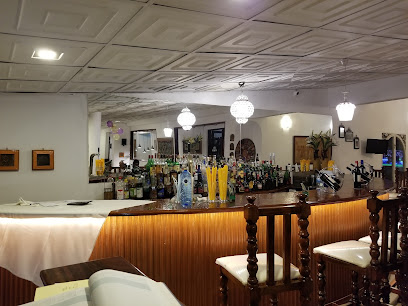
Al Terrace
Experience culinary delights at Al Terrace in Senegambia - where local flavors meet international cuisine amidst a beautiful outdoor setting.
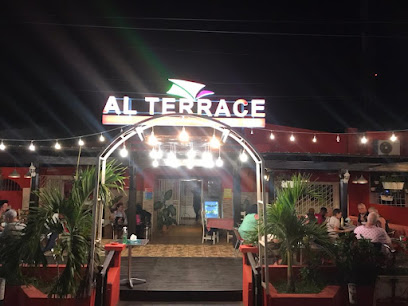
Leo's Beach Hotel & Restaurant
Experience luxury and local flavors at Leo's Beach Hotel & Restaurant in Brufut Heights - your gateway to relaxation in The Gambia.

Playa Del Sol
Discover the vibrant flavors of Gambian cuisine at Playa Del Sol in Serrekunda - your perfect dining destination.
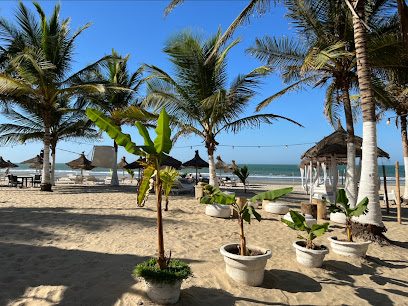
Kasumai BBQ and Steak House
Experience exquisite barbecue flavors at Kasumai BBQ and Steak House near Bijilo Beach - a must-visit culinary destination in The Gambia.
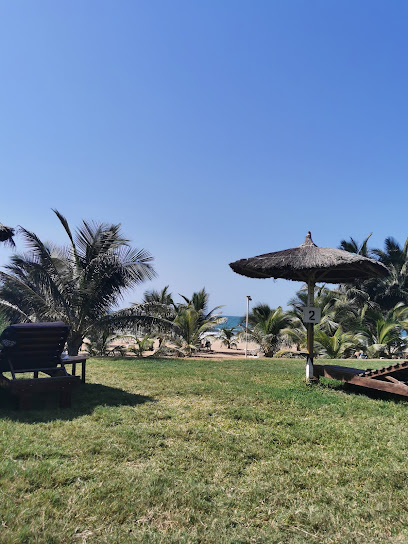
Heritage Restaurant
Experience authentic Gambian cuisine at Heritage Restaurant in Serrekunda - where flavor meets tradition.
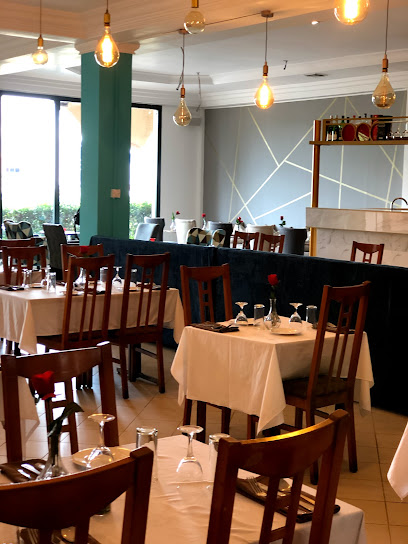
Markets, malls and hidden boutiques
TOP-SHOP
Explore TOP-SHOP for authentic Gambian souvenirs, intricate handicrafts, and stunning art, located at the Serene Senegambia Beach Hotel.
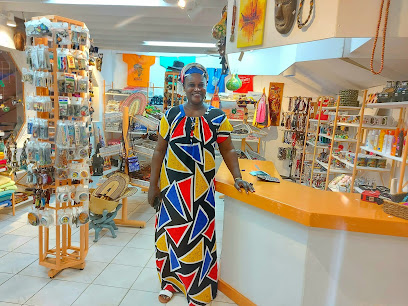
Halabaid Trading Enterprises paradise supermarket
Discover the vibrant grocery shopping experience at Halabaid Trading Enterprises in Farafenni, offering a wide selection of local and essential products.
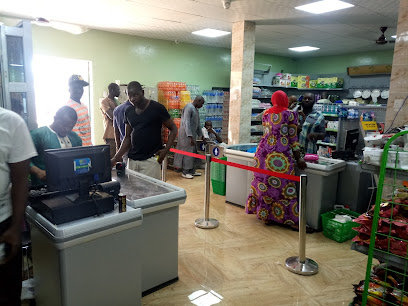
Soma Saremawdou Market
Explore the vibrant Soma Saremawdou Market, a local treasure in Gambia, offering unique crafts, delicious snacks, and an authentic cultural experience.
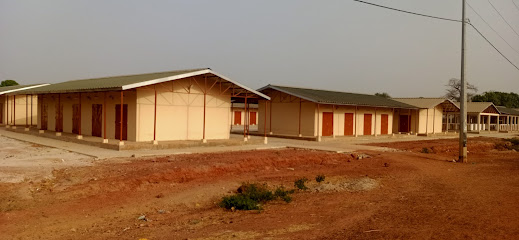
Soma Gassama Shop
Explore the vibrant Soma Gassama Shop, where local culture and fresh produce come together in the heart of Gambia.

Kiang West National Park headquarters
Explore the biodiversity and cultural heritage at Kiang West National Park Headquarters, a gateway to The Gambia's stunning natural landscapes.
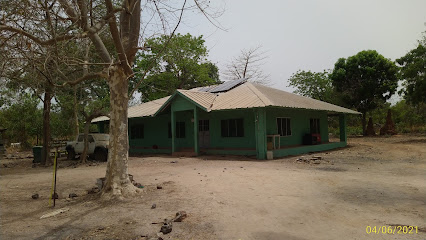
Benteh shop
Explore Benteh Shop in Dankunku for unique local products and a warm cultural experience in the heart of Gambia.

Haddy Gaye and Sons’ Shop
Discover unique local crafts at Haddy Gaye and Sons’ Shop in Farafenni, your destination for authentic Gambian souvenirs.
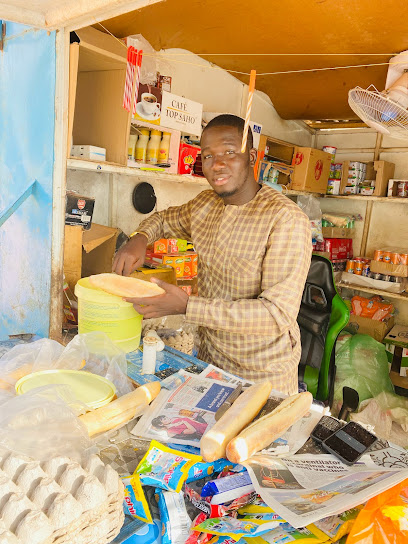
DIARROU TINKIN
Discover the thrill of water skiing at Diarrou Tinkin, the ultimate water sports destination in Kwinella, Gambia.
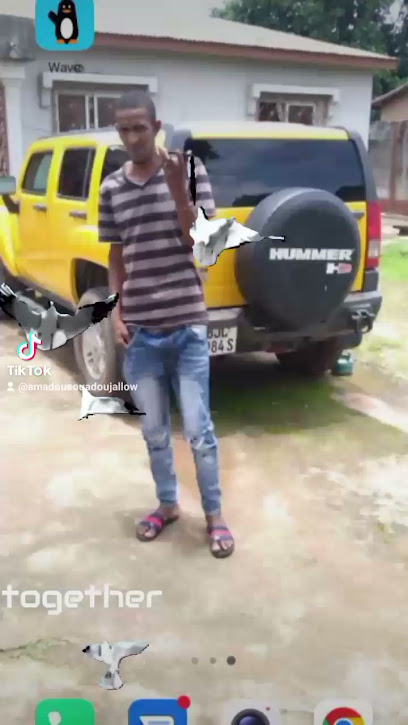
INGCO Shop
Explore the Ingco Shop in Soma for an unmatched selection of quality tools and supplies tailored for every DIY project and professional need.
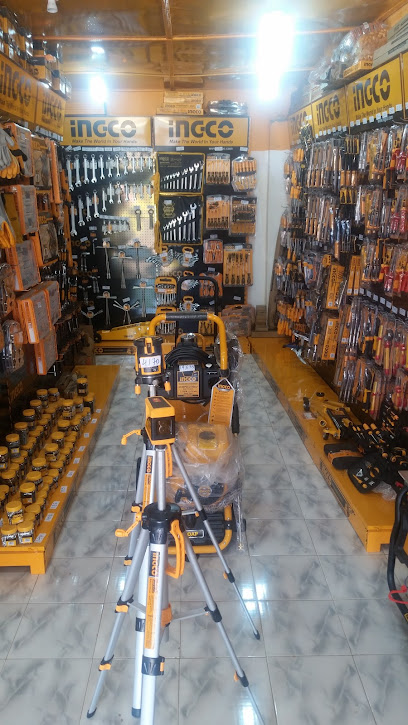
Touray Kunda Grocery Store
Explore local flavors and culinary treasures at Touray Kunda Grocery Store in Saba, a must-visit for every traveler seeking authentic Gambian experiences.
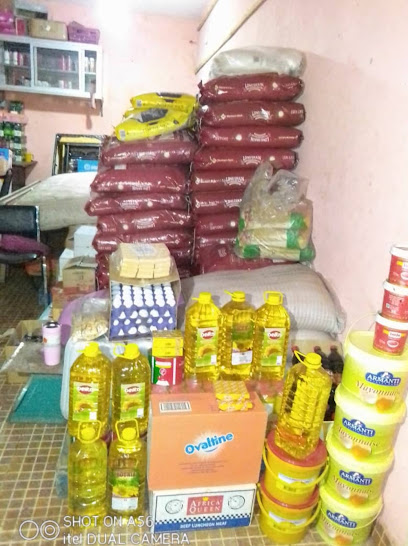
Limboko
Explore Limboko Shopping Mall in Soma, a vibrant hub of culture, shopping, and dining in Gambia, perfect for every tourist's adventure.
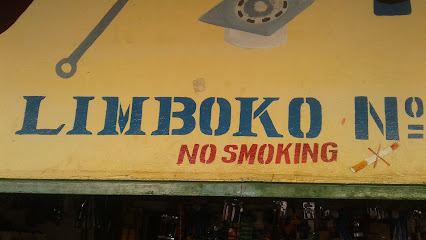
Mercy Company for Treading and Human Develombment
Discover local craftsmanship at Mercy Company for Treading and Human Development, a unique furniture shop in Ndungu Kebbe offering exquisite household items.
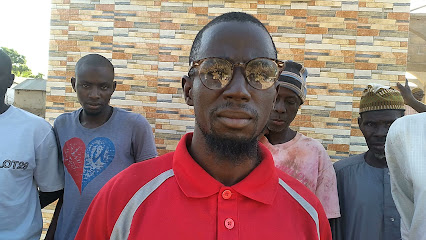
Bakang
Discover the vibrant building materials market of Bakang, where Gambian craftsmanship meets cultural richness, perfect for design enthusiasts and curious travelers.

Ceesay Fashion Shop
Discover unique Gambian fashion at Ceesay Fashion Shop in Soma, where vibrant styles and local craftsmanship come together.

Yana's Gift shop
Explore Yana's Gift Shop for authentic Gambian crafts, local art, and unique souvenirs that celebrate the vibrant culture of Gambia.

Essential bars & hidden hideouts
Solomon’s Beach Bar & Restaurant
Experience the best of Gambian cuisine and vibrant nightlife at Solomon’s Beach Bar & Restaurant, where food, fun, and the ocean meet.
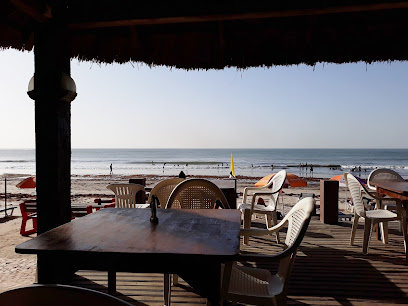
Calypso bar & restaurant
Discover the vibrant flavors and lively atmosphere at Calypso Bar & Restaurant in Bakau, a perfect spot for tourists seeking local cuisine and refreshing drinks.
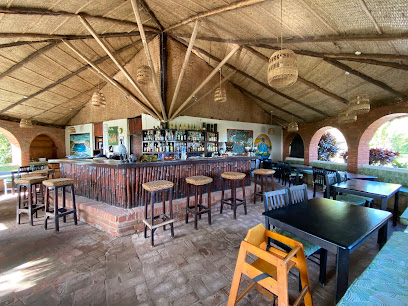
Roots Beach Bar & Restaurant
Discover the perfect blend of local cuisine and beachside relaxation at Roots Beach Bar & Restaurant in Bijilo.
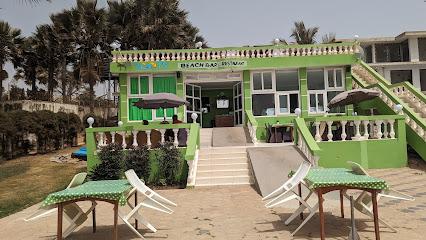
New Baileys Beach Bar
Discover the vibrant New Baileys Beach Bar in Serrekunda, where delicious cuisine meets stunning seaside views for an unforgettable experience.
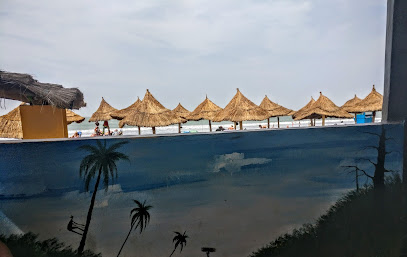
Cassy's Lounge
Experience the vibrant nightlife of Serrekunda at Cassy's Lounge, where local charm meets delicious drinks in a welcoming atmosphere.
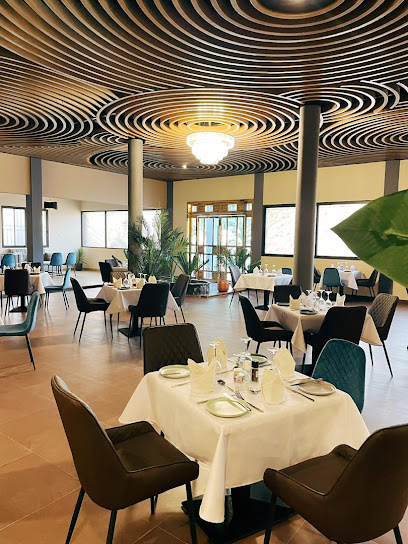
Dolphin´s Beach Bar
Experience the lively ambiance and stunning ocean views at Dolphin's Beach Bar in Brufut, the perfect spot for relaxation and enjoyment.
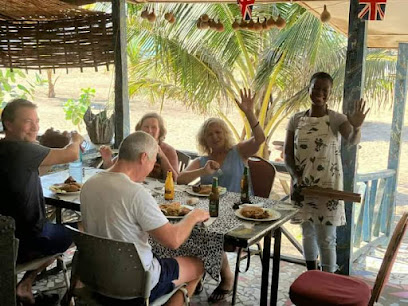
Guesthouse Three Wild Monkeys
Discover a vibrant retreat at Guesthouse Three Wild Monkeys, blending local culture with comfort in the heart of Kololi, Serrekunda.
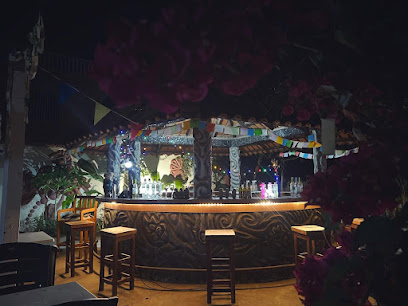
Rainbow beach bar and lodgings
Experience the lively ambiance, refreshing drinks, and local culture at Rainbow Beach Bar and Lodgings in Sanyang village, Banjul.
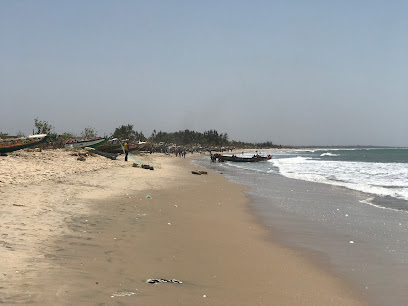
Whorf town
Experience the vibrant nightlife at Whorf Town, a lively bar in Farafenni, where local culture meets refreshing drinks and great company.
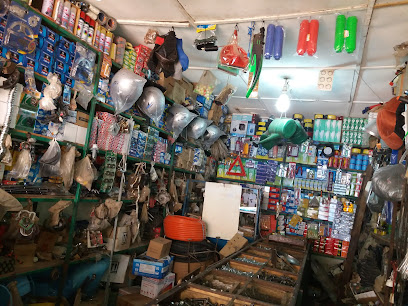
Babou's Food Paradise
Experience authentic Gambian cuisine at Babou's Food Paradise, where every dish tells a story and flavors come alive.
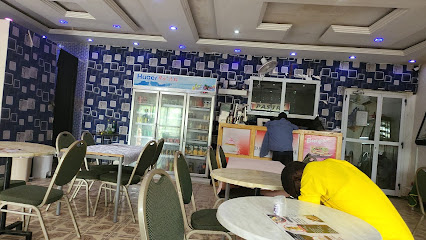
Afra GNPC
Experience the vibrant flavors of Gambian cuisine at Afra GNPC, a premier meat restaurant in Soma offering succulent dishes and a friendly atmosphere.
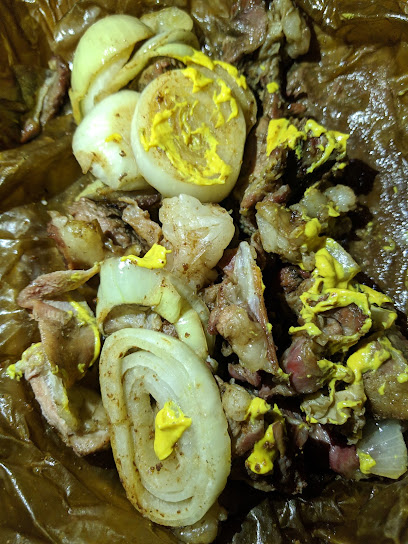
Fanta's Restaurant
Discover the authentic flavors of Gambia at Fanta's Restaurant in Kerewan, where every meal is a celebration of local culture.
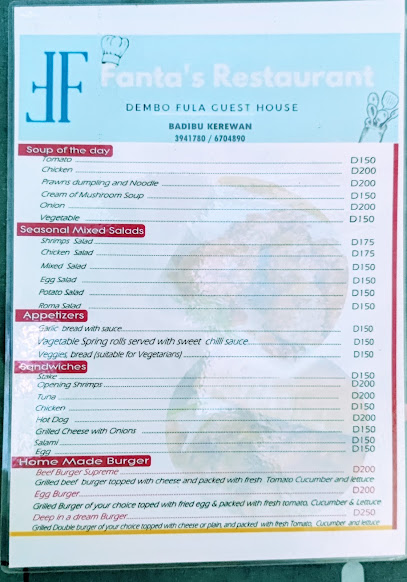
Bambo Bar
Discover the vibrant atmosphere and authentic Gambian flavors at Bambo Bar in Tendaba, where every meal is a celebration of local culture.
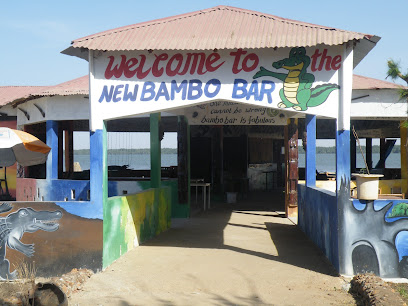
Poco Loco Beach Bar & Restaurant
Experience the charm of Poco Loco Beach Bar & Restaurant in Bureng, where delightful cuisine meets breathtaking coastal views.
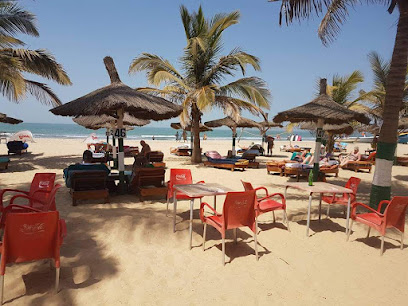
Local Phrases about Kiang West National Park
-
- HelloSalam
[sa-lam] - GoodbyeBa bai
[ba-bai] - YesEe
[ee] - NoDémm
[dem] - Please/You're welcomeJerejef
[je-re-jef] - Thank youJerejef
[je-re-jef] - Excuse me/SorrySamay woon
[sa-may woon] - How are you?Nanga def?
[nan-ga def] - Fine. And you?Nopp. Nopp yow?
[nop. nop yow] - Do you speak English?Ndongo def Angaleex?
[ndong-go def an-ga-leex] - I don't understandDégg naa la
[deg na la]
- HelloSalam
-
- I'd like to see the menu, pleaseMoo sa jëf ak menun, jërejef
[mo sa jef ak me-nun, je-re-jef] - I don't eat meatDémb naa xar yàpp
[dem na xar yap] - Cheers!Jërejëf!
[je-re-jef] - I would like to pay, pleaseMoo sa jëf ak tuuti, jërejef
[mo sa jef ak tuu-tee, je-re-jef]
- I'd like to see the menu, pleaseMoo sa jëf ak menun, jërejef
-
- Help!Nangu!
[nan-gu] - Go away!Deex!
[dex] - Call the Police!Jàngandoo polis!
[jang-an-doo pol-is] - Call a doctor!Jàngandoo dokteer!
[jang-an-doo dok-teer] - I'm lostDégg naa la
[deg na la] - I'm illDégg naa la
[deg na la]
- Help!Nangu!
-
- I'd like to buy...Moo sa xar ...
[mo sa xar] - I'm just lookingMoo am naa jàng
[mo am na jang] - How much is it?Xaralaat la?
[xar-la-lat la] - That's too expensiveDefaal xaralaat bi
[de-fal xar-la-lat bi] - Can you lower the price?Mbaa defaal xaralaat bi
[mba de-fal xar-la-lat bi]
- I'd like to buy...Moo sa xar ...
-
- What time is it?Waxtu bi ci biir?
[wak-tu bi ci bir] - It's one o'clockBiir bu neex
[bir bu nex] - Half past (10)Bu yoon na (10)
[bu yoon na] - MorningSuba
[su-ba] - AfternoonNgoon
[ngoon] - EveningLeeral
[lee-ral] - YesterdayNgoon
[ngoon] - TodayHaw
[haw] - TomorrowJot
[jot] - 1Benn
[ben] - 2Juj
[jooj] - 3Talata
[ta-la-ta] - 4Najo
[na-joo] - 5Jellu
[jel-lu] - 6Wenté
[wen-te] - 7Wuró
[wu-ro] - 8Jowó
[jo-wo] - 9Jewó
[je-wo] - 10Fukk
[fukk]
- What time is it?Waxtu bi ci biir?
-
- Where's a/the...?Mbaa ...?
[mba] - What's the address?Adrees bi la?
[a-drees bi la] - Can you show me (on the map)?Mbaa nopp ak bukki?
[mba nop ak buk-ki] - When's the next (bus)?Ndimbal naa (bus) bu dëkk?
[ndim-bal na bus bu dek] - A ticket (to ....)Billet (to ....)
[bil-let to]
- Where's a/the...?Mbaa ...?
History of Kiang West National Park
-
Kiang West National Park, nestled within the lower reaches of the Gambia River, has been home to human settlements for centuries. Archaeological findings suggest the presence of early inhabitants who lived off the rich biodiversity of the region. These early communities engaged in fishing, hunting, and rudimentary agriculture, laying the foundation for the rich cultural tapestry that is still evident in the area today.
-
The Gambia, including the area now known as Kiang West National Park, experienced significant changes during the colonial period. European explorers, particularly the British, ventured into this region in the quest for trade routes and resources. The Gambia River, a crucial waterway, played a vital role in these explorations, and the surrounding lands were mapped extensively. This era brought about profound changes in the social and economic structures of the local communities.
-
Kiang West National Park was officially established in 1987 as part of The Gambia's efforts to protect its unique ecosystems and wildlife. The park spans over 19,526 hectares and encompasses a variety of habitats, including savannas, mangroves, and wetlands. The establishment of the park aimed to conserve the area's biodiversity, promote sustainable tourism, and support local communities through eco-friendly initiatives.
-
Since its inception, Kiang West National Park has been at the forefront of wildlife conservation in The Gambia. Efforts have been made to protect endangered species, such as the West African manatee, hyenas, and various bird species. The park's management has implemented strategies to mitigate human-wildlife conflicts and promote community involvement in conservation activities. These efforts have garnered international attention and support.
-
The cultural heritage of Kiang West National Park is deeply intertwined with the traditions and lifestyles of the local communities. The park is home to several ethnic groups, including the Mandinka, Fula, and Jola, each with their own unique customs and practices. Traditional ceremonies, music, and dance continue to play a significant role in daily life, offering visitors a glimpse into the rich cultural fabric of the region. The park's management works closely with these communities to ensure that their cultural heritage is preserved and respected.
-
In recent years, Kiang West National Park has become a popular destination for ecotourism. The park offers a range of activities, including guided wildlife tours, birdwatching, and boat trips along the Gambia River. Ecotourism initiatives aim to provide sustainable livelihoods for local communities while minimizing the environmental impact of tourism. Visitors have the opportunity to experience the natural beauty and cultural richness of Kiang West, making it a must-visit destination in The Gambia.
Kiang West National Park Essentials
-
Kiang West National Park is located in the Lower River Division of The Gambia. The nearest international airport is Banjul International Airport, approximately 145 kilometers away. From Banjul, you can hire a taxi or a private car to the park, which typically takes around 3 to 4 hours by road. Alternatively, you can take a public bus (locally known as 'Gele Geles') from Banjul to Soma, and then hire a local taxi from Soma to the park.
-
Within Kiang West National Park, transportation options are limited. Most visitors hire a local guide with a 4x4 vehicle to navigate the park's trails and paths. For those wishing to explore nearby villages, bicycles and motorcycles can be rented. It's also possible to arrange for boat tours along the Gambia River, which provides a unique perspective of the park's diverse wildlife.
-
The official currency in The Gambia is the Gambian Dalasi (GMD). Credit cards are accepted in some hotels and restaurants in larger towns, but it's advisable to carry cash, especially when traveling to rural areas and the park. ATMs are available in larger towns like Banjul and Soma, but may not be reliable in remote areas. It's wise to withdraw sufficient cash before traveling to Kiang West National Park.
-
Kiang West National Park is generally safe for tourists. However, like any travel destination, it is advisable to take standard precautions. Avoid walking alone at night in unfamiliar areas and keep an eye on your belongings in crowded places. While there are no specific high-crime areas targeting tourists within the park, it is always best to stay vigilant and aware of your surroundings.
-
In case of emergency, dial 117 for police assistance or 116 for medical emergencies. The nearest medical facilities are in Soma, which is around 30 kilometers from the park. It is recommended to have travel insurance that covers medical emergencies. For minor health issues, there are local pharmacies in Soma where you can purchase over-the-counter medications.
-
Fashion: Do dress modestly, especially when visiting local villages. Avoid wearing revealing clothing. Religion: Do respect local customs and traditions. Always ask for permission before taking photographs of people or religious sites. Public Transport: Do be respectful and give up your seat to elderly passengers. Don't eat or drink on public transport. Greetings: Do greet people with a handshake and a smile. It's customary to ask about someone's well-being before starting a conversation. Eating & Drinking: Do try local delicacies and accept food offerings graciously. Don't refuse hospitality, as it is considered impolite.
-
To experience Kiang West National Park like a local, engage with local guides who can provide in-depth knowledge of the park's flora and fauna. Visit the nearby villages to learn about the traditional Gambian way of life. Participate in community-based tourism initiatives, where you can learn about local crafts, cuisine, and customs. Don't miss the opportunity to take a boat tour along the Gambia River, where you can spot hippos, crocodiles, and a variety of bird species. Lastly, attend local festivals and events to experience the vibrant culture of the region.
Nearby Cities to Kiang West National Park
-
Things To Do in Farafenni
-
Things To Do in Banjul
-
Things To Do in Lamin
-
Things To Do in Brikama
-
Things To Do in Bakau
-
Things To Do in Serekunda
-
Things To Do in Serrekunda
-
Things To Do in Kaolack
-
Things To Do in Gunjur
-
Things To Do in Janjanbureh
-
Things To Do in Canchungo
-
Things To Do in Bissau
-
Things To Do in Mbour
-
Things To Do in Thiès
-
Things To Do in Buba








